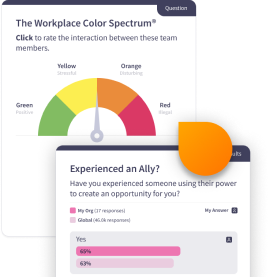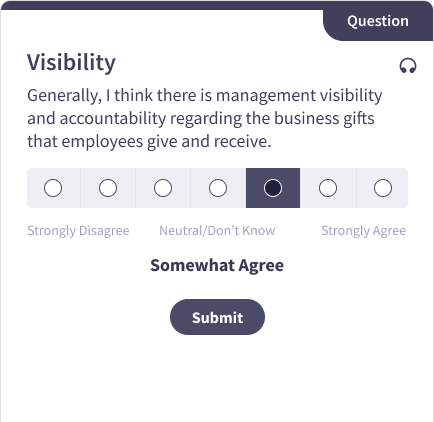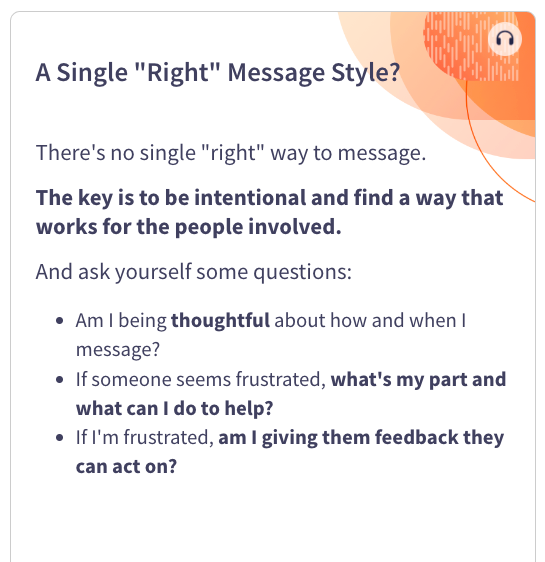
Balancing Professionalism and Free Expression
Politics are a natural part of life, and conversations about them often arise at work. But how can we navigate these discussions without causing tension? And what about the impact of our political activities outside the office or on social media?
Microlesson Description
When workplace political discussions get heated, it can lead to problems for everyone involved. Remember to keep conversations respectful and civil — and drop the subject if things start to escalate. You are still responsible for your conduct outside of work and on social media, as it can damage co-worker relationships.Key Concepts
- When workplace political discussions get heated, it can lead to problems for everyone involved.
- Remember to keep conversations respectful and civil — and drop the subject if things start to escalate.
- You are still responsible for your conduct outside of work and on social media, as it can damage co-worker relationships.
Microlesson Features
- Employee sentiment pulsing questions that provide leaders with insights into their workforce's core cultural competencies
- Emtrain's Expert Answers tool, enabling employeees to submit anonymous questions about sensitive issues.
- Rich, contemporary video scences illustrating key concepts through realistic scenarios
- A data driven, skill-based approach to eLearning that establishes a shared language for employees.

Related Resources
Related Trainings
Frequently Asked Questions
Below are answers to common questions that employees and managers have about this topic. These FAQs provide a preview of what you’ll learn in this microlesson and why it matters.
Q
Why are political conversations risky in the workplace?
Political conversations are risky in the workplace because they can quickly become polarizing and divisive. Differing opinions may escalate into arguments, which can harm working relationships and create a hostile environment.
Q
How can politics disrupt team relationships and productivity?
Politics can disrupt team relationships by creating factions or reinforcing divisions between employees. Productivity suffers when teams focus on disagreements rather than collaboration.
Q
What risks arise if political debates escalate into conflict?
If political debates escalate, they can result in formal complaints, loss of trust, and compliance risks. Such conflicts also damage organizational reputation when they spill beyond the workplace.
Q
How can managers set respectful boundaries on political talk?
Managers can set respectful boundaries by making clear that political conversations should not disrupt work or alienate coworkers. Setting ground rules for respectful communication helps reduce conflict.
Q
Why is neutrality important for maintaining workplace harmony?
Neutrality ensures managers don’t appear biased or favor certain perspectives. Maintaining neutrality also protects against claims of discrimination and keeps focus on business objectives.



